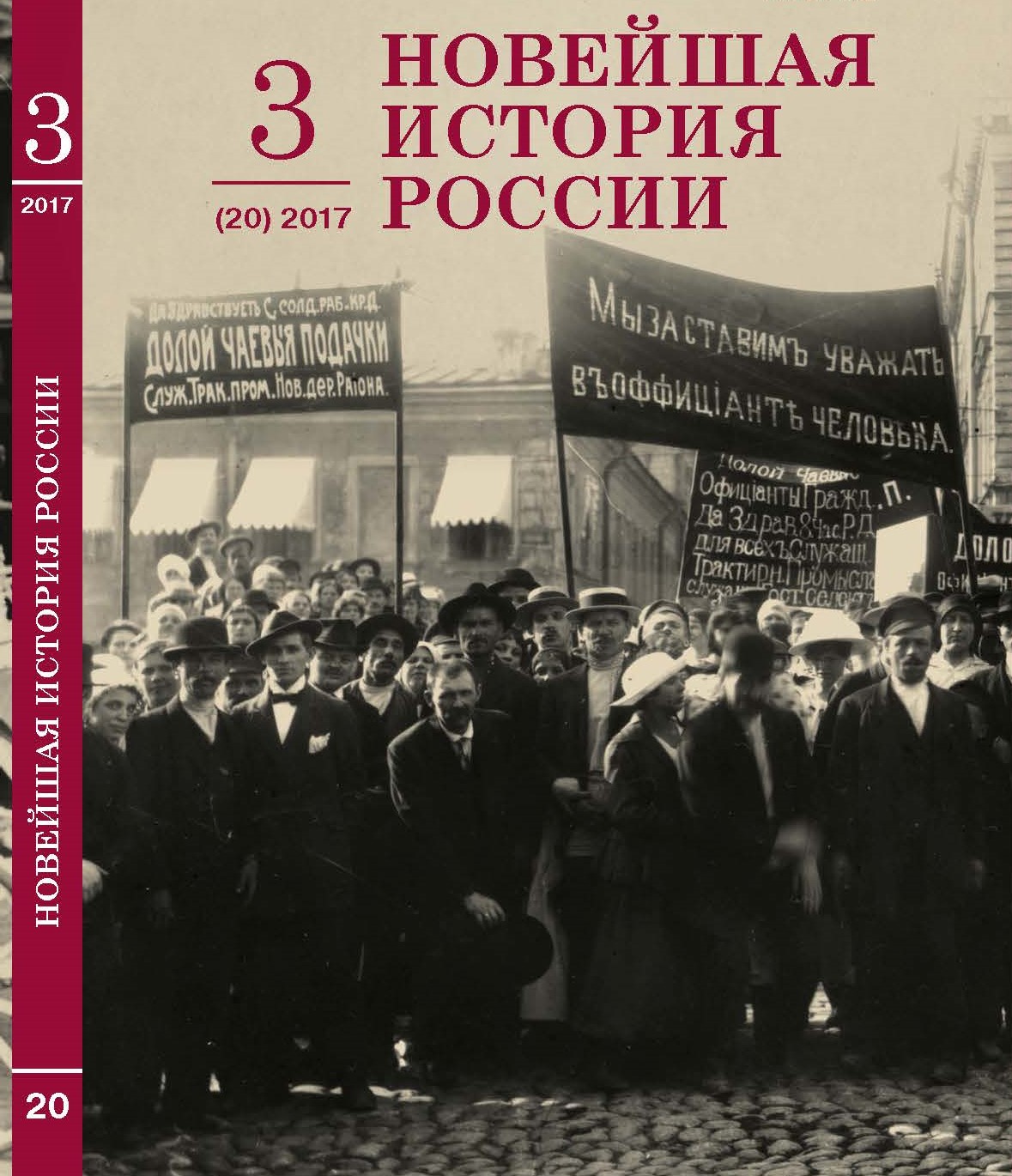Трудовые конфликты на промышленных предприятиях Уральской области в юбилейный год советской власти: проблема взаимоотношений власти и рабочих в 1927 году
Labor Disputes at the Industrial Enterprises of the Urals rural Area in the Jubilee Year of the Soviet Rule: the Problem of Relations between the Authorities and Workers in 1927
Author(s): M. A. FeldmanSubject(s): History, Economic history, Social history, Recent History (1900 till today), Interwar Period (1920 - 1939)
Published by: Издательство Исторического факультета СПбГУ
Keywords: party; industry; labor conflicts; Ural; workers; managers; pricing
Summary/Abstract: The article, based on the use of statistics, shows the dynamics of labor conflicts at industrial enterprises of the Ural region, as well as the forms and methods of resolving labor disputes. Authors examines the factors that provoked the occurrence of strikes and analyzes the results and consequences of the strike movement. The behavior of workers indicates their willingness to defend their rights under the Soviet labor laws and their hopes for an opportunity to negotiate with the administration of the enterprise. Because of this, it seems that the social protest of the workers was of a local and exclusively economic nature. The range of independence of decision-making by local party committees was determined by political reasons (the desire to meet the mythological “proletarian state”); purely opportunistic (the desire “not to take rubbish out of the house” and not to cause the wrath of the Center), economic — for example, a ban on the overexpenditure of the wage fund associated with the officially proclaimed “regime of economy”. The very limited democratic character of the life within the Soviet society was nevertheless revealed during the events of May 1927 in Sverdlovsk, even if not openly, in the approval of the strikers’ actions by the part of the workers and in the understanding of the motives of social protest by the “old Bolsheviks” within the local regional leadership. The option of managed democracy, allowing workers to present their demands in a strictly established order, patiently waiting for their issue to be resolved in management instances, appeared to suit the leaders of the Urals region, but was far from the mythological “dictatorship of the proletariat”.
Journal: Новейшая история России
- Issue Year: 7/2017
- Issue No: 20
- Page Range: 115-127
- Page Count: 13
- Language: Russian

